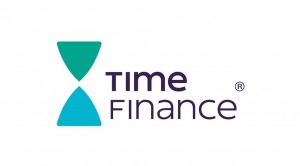The impact of the pandemic is still being felt by Bath-headquartered alternative finance provider Time Finance, it has admitted – but added that it remained upbeat as momentum was building in its core offering.
The group, which specialises in asset, loan and invoice finance products, reported a 1% rise in pre-tax profits to £1.2m on revenue also up 1% to £11.8m in the six months to 30 November.

But it pointed to its deal origination figure, which at £58.1 was the highest level since the start of the pandemic and an increase of more than 24% on the £46.7m achieved in the preceding six-month period.
This resulted in the group’s gross lending book growing to £120.5m on 30 November compared to £115.7m on 31 May.
CEO Ed Rimmer, pictured, said: “An increasing own-book lending portfolio underpins the group’s future income generation and, in turn, profitability.
“Crucially, the group’s own-book lending portfolio has continued to grow since the half-year period end.”
During the six-month period, Time Finance gained accreditation from the British Business Bank to provide the Recovery Loan Scheme to small and medium-sized businesses and also agreed a£50m invoice finance three-year funding facility agreed with its corporate banker.

Mr Rimmer said the various waves of the Covid-19 pandemic meant its effects on trading activity was still being felt by Time Finance and normal business had yet to be fully resumed.
“The impact of the pandemic continues to fall primarily on the group’s non-core brokerage arms and particularly in the vehicles arena exacerbated by the well-publicised delays in sourcing vehicles,” he added.
Chair Tanya Raynes said given the continued impact of the pandemic on its sector and the wider UK economy, it was pleasing that momentum was again building in its core product offerings and that its loan book was also growing.
“This gives us confidence in our strategy for the medium-term. The balance sheet continues to demonstrate its resilience and it is particularly encouraging to see deals in arrears at their lowest level since late 2018,” she said.
“Lending to smaller SMEs will always mean there are deals in arrears. This is to be expected, and risk is priced into our model, however we are delighted to see the levels both lower than anticipated and continuing to fall.
“The board continue to assess the impact of the current wave of the pandemic but remain confident the fundamentals of the business are secure, that the group remains well placed to capture the opportunities ahead of us, and that the medium-term strategy will deliver significant growth.”



















